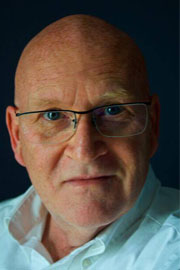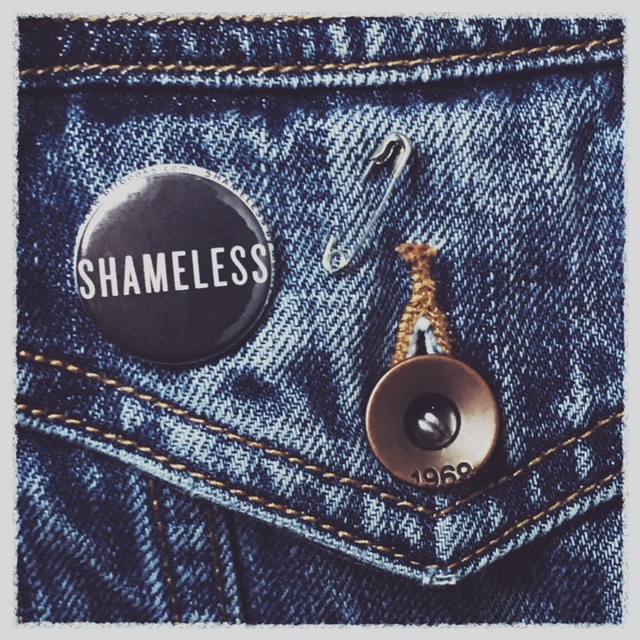Month: March 2018
by Jenn Marr
It is hard not to be consumed by blemishes when we are taught to strive for perfection and nothing else. Again, it is difficult to not place your focus on feelings of being insubstantial and flimsy, and that everything around you is collapsing, when all you want is to simply feel good enough.
All the time you hear and see people preaching their plastic positivity on how they have it under control and you can too! They say all you have to do is follow this very simple plan that everyone else does and get inside the box and everything will be okay.
How do you come to terms with the fact that, maybe, not all of us can fit inside of one box?
Perhaps, one size does not fit all? It seems incredibly unrealistic that in this vast world we are to be contained in one way and on one path. Yet this is often what we are told.
Apparently happiness is attained by reaching landmarks and not actually by feeling and following your heart. Isn’t that confusing? All these beautiful humans born into happiness and worth right from the get-go, but then we are forced to come away from that into places of uncertainty and insecurity just to fit into the masses. No one is taught what happiness is, let alone how to maintain it. Instead you are presented with endless examples of how to let go of feelings and sight, and told to just put one foot in front on the other to simply make it through the day.
It is time to learn to differentiate the different types of discomfort and pain. Just like you, these feelings do not deserve to be stuffed inside a box where they cannot be noticed or felt. Despite what you have been lead to believe, those parts of you are worthy of being recognized and heard.
Remember growing pains when you were a kid? Your body was then shifting from the inside and allowing your outer physical body to change. Yes, it was uncomfortable but you trusted this discomfort because you knew and understood that this growth was necessary to move forward into the next version of yourself.
Emotional discomfort? You are taught to bottle it and save it for later; hell maybe even never if you choose. You are told to just push it down deeper and deeper into a place where you can no longer hear the cries and tantrums of your past self-trying to escape.
How’s that working for you?
Are you tired yet? Exhausted from holding onto everything that you think you are pushing away, you are actuality pushing down and creating an anchor of emotional weight that gravitates somewhere deep and dark wherever you go. You don’t even realize that is happening because you blend in seamlessly with the crowd surrounding you.
What they don’t tell you is that you’re going to drown soon if you don’t start to letting go.
You have choices.
You can choose the discomfort of feeling and dealing to lessen the load so you can make your way back up to the surface of light and understanding, or you can hold tight to everything you know and gasp for air until there’s nothing left.
Let go or be dragged.
©2018 Jenn Marr
Jenn Marr is an instructor at Studio 26 Hot Yoga in Winnipeg.
Chris Riley is a photographer and filmmaker from Detroit currently in the midst of creating a documentary web series about her city’s neighbourhood rebirth. You can find more of her work at www.rileycreates.com
Always hiding
something. Implied,
though never obvious.
A skeleton.
Your soft skin. Temptation
more than seduction.
Never denied.
Reckless behavior,
shameless thoughts. Still,
you never divulged
a complete history.
Never asked.
I could taste the alcohol
on your breath,
always could, but
wanted more.
It was easier
to say goodbye,
than it was to expose
the naked truth.
We are all infallible,
if we try.
You stopped trying.
03/22/2018 j.g.l.
Words For Someone Else
Posted on March 21, 2018 by j.g.lewisLeave a commentIt’s not what you read, but what you see, that goes to the core of what you will believe.
I once read a quote where an eight-year-old described poetry as something “where they don’t use all the page” Over the past couple of days I’ve read quote upon quote, a few poetic philosophies, and an inane pseudo-essay including obviously misunderstood academic terms, explaining what poetry really means.
Nothing I have read is as accurate as the child’s description.
Poetry does, undeniably, require space to breathe on the page. Sometimes, when properly done, only a few words are required to present the poet’s wit, wisdom, or worth. Although it is not simple, poetry is involved and too many people are determined to make it complicated.
Truly, poetry is more than words on a page. The craft, art, and undertaking of poetry goes beyond language, and it does so with more accuracy than any other written form.
If words were simply words; love songs would sound like streetcar alerts, love letters would be as romantic as minutes from a board meeting, and a poem would read like ingredients on a cereal box.
Words, indeed, have a meaning (some words have more than one) but even the description of a word does not define the meaning of a poem. Each word has an essence, and a backbone, with sentiment, soul, emotion, and memory stuffed inside. A poem takes these words and gives them space to resonate.
Poetry can heal or poetry can hurt. We read the words and we respond.
Yet, there are people who look distractingly deeper at poetry and, most times, complicate the process. They study the metrics of the meter, confuse the cadence, look for implied imagery, and search for the metaphor instead of the meaning.
This practice shows little regard for the poet who has already taken sufficient time to work through the mechanics of language and the moral or message, taking into account catastrophe, context, and heartbreak, stanza size and line break, and the politics of the atmosphere.
By the time a poem is presented, the poet has already struggled with the format, whether it is an orderly sonnet or set out in a measured stanza. Even free-form involves an acceptable purpose.
Over and above the poet’s intentions, a poem speaks for itself. It just happens.
Poetry does not take words at face value, yet it does not beg for description, interpretation, or even attention. All it asks for is endeavored understanding.
Your understanding may not, or will not, be the same as the writer, or that of the person sitting beside you on the bus, or another soul halfway around the world.
That’s good. It’s more than good, it is right. Everything else on the planet is so set in its way (even as we evolve or disintegrate), that so much seems too consistent. Except poetry.
Poetry needs to be consistently unpredictable so that we can receive it in the mood or the moment. It should be comforting to know there are words waiting that will accept the way you see them, or feel them, or believe them.
As soon as you have to study a poem it becomes a chore instead of a charm. There is no is no risk/benefit analysis required of poetry, don’t go looking for it.
I read a lot of poetry; far more than I write. Each year I take a volume of a celebrated, “classic” dead poet and, for the entire year, devour the work one poem per day (and some days even more). Last year it was Wordsworth, this year Emily Dickinson.
I’ll absorb, I will react, I will reread and recite, but I dare not call it study. If I call it anything, it is appreciation; and it may not even be that. And my reading is not limited to only those volumes, nor is it limited to treasured bards of years gone by. I’m still cherishing the recent work of a woman who is very much alive, and there is always a book of a recent, or lesser known, poet in my day bag. It might even sound corny, but I breathe poetry. Inhale and exhale. It’s just what I do.
I’d encourage you to do the same. Armed with a poem, you’ll be better equipped to take on the world. By avoiding the news (fake or foolhardy) for 10 minutes a day, or stealing a few moments away from text books, bible study, or gossip pages on your mobile device, you will better understand the human condition.
Try it. A poem a day, every day. There’s even an app for that and it’s free, functional, and quite enjoyable.
Just read it. Leave the analysis to sales reports, tax returns, and political maneuvering, and instead be moved by the writing. Words are important.
Poetry matters; let it speak to you, and for you.
Today is World Poetry Day
Take a poem to lunch.
©2018 j.g. lewis




